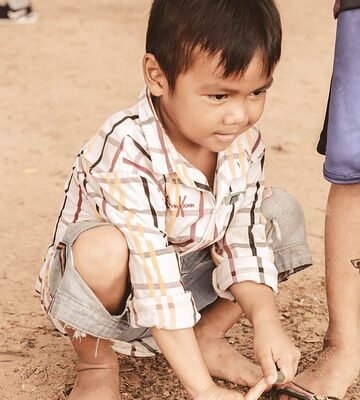Understanding Social Media’s Impact on Child Development
Understanding Social Media’s Impact on Child Development: A Comprehensive Guide
As a parent or caregiver, it’s natural to wonder how social media is affecting the children in our lives. With the vast majority of kids having access to some form of social media, it’s essential to understand its impact on their development. In this article, we’ll delve into the world of social media and explore its effects on child development, from cognitive benefits to potential risks.
Social media has become an integral part of modern life, and children are no exception. Platforms like Instagram, TikTok, and Facebook have made it easy for kids to connect with others, share their experiences, and consume information. However, the question remains: how is social media influencing the development of our young minds?
**Key Point 1: Social Media’s Impact on Self-Esteem**
Research suggests that excessive social media use can lead to decreased self-esteem in children. A study published in the Journal of Youth and Adolescence found that teenagers who spent more time on social media reported lower levels of self-esteem compared to those who spent less time online.
Excessive social media use can lead to a distorted view of reality, where children compare their lives to curated highlight reels. This can create unrealistic expectations and promote feelings of inadequacy.
**Key Point 2: Social Media’s Effect on Mental Health**
Social media has also been linked to an increased risk of mental health issues in children. A study conducted by the Royal Society for Public Health found that exposure to social media was associated with a higher risk of depression, anxiety, and loneliness.
The constant stream of information on social media can create a sense of FOMO (fear of missing out), leading to feelings of anxiety and stress. Additionally, the pressure to present a perfect online image can exacerbate mental health issues.
**Key Point 3: Social Media’s Impact on Cognitive Development**
Surprisingly, social media has also been shown to have cognitive benefits for children. A study published in the Journal of Educational Psychology found that students who used educational apps and social media platforms performed better in reading comprehension and vocabulary skills.
Social media can provide children with access to a wealth of educational resources, including online courses, tutorials, and educational videos. This can help them develop important cognitive skills like critical thinking and problem-solving.
**Key Point 4: Social Media’s Role in Social Skills Development**
Social media has also been linked to changes in social skills development in children. A study published in the Journal of Applied Developmental Psychology found that teenagers who spent more time on social media reported decreased face-to-face communication skills.
Excessive social media use can lead to a decline in face-to-face interactions, which are essential for developing important social skills like empathy and conflict resolution.
**Key Point 5: Parental Guidance and Social Media**
Finally, it’s essential to acknowledge the role of parents in guiding children’s social media use. Parents can play a significant role in ensuring that their children use social media responsibly.
Parents should set limits on screen time, monitor their child’s online activity, and engage in open conversations about social media use. This can help children develop healthy attitudes towards social media and avoid potential risks.
**Conclusion**
Social media is a complex and multifaceted phenomenon that plays a significant role in the lives of children. While it offers many benefits, such as cognitive development and access to educational resources, it also poses significant risks, including decreased self-esteem, mental health issues, and social skills decline.
As parents, caregivers, and educators, it’s essential to approach social media with caution and guidance. By setting limits, monitoring online activity, and engaging in open conversations, we can help children develop healthy attitudes towards social media and avoid potential risks.
**Tags**
social media impact on child development
children and social media
parental guidance for social media use




